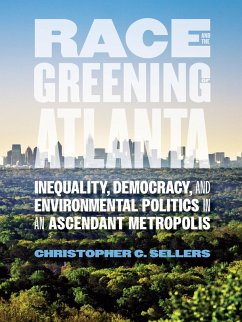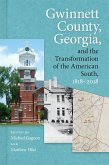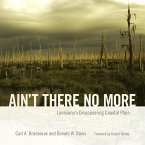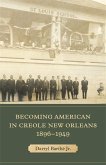Race and the Greening of Atlanta turns an environmental lens on Atlanta's ascent to thriving capital of the Sunbelt over the twentieth century. Uniquely wide ranging in scale, from the city's variegated neighborhoods up to its place in regional and national political economies, this book reinterprets the fall of Jim Crow as a democratization born of two metropolitan movements: a well-known one for civil rights and a lesser known one on behalf of "the environment." Arising out of Atlanta's Black and white middle classes respectively, both movements owed much to New Deal capitalism's undermining of concentrated wealth and power, if not racial segregation, in the Jim Crow South.
Placing these two movements on the same historical page, Christopher C. Sellers spotlights those environmental inequities, ideals, and provocations that catalyzed their divergent political projects. He then follows the intermittent, sometimes vital alliances they struck as civil rights activists tackled poverty, as a new environmental state arose, and as Black politicians began winning elections. Into the 1980s, as a wealth-concentrating style of capitalism returned to the city and Atlanta became a national "poster child" for sprawl, the seedbeds spread both for a national environmental justice movement and for an influential new style of antistatism. Sellers contends that this new conservativism, sweeping the South with an antienvironmentalism and budding white nationalism that echoed the region's Jim Crow past, once again challenged the democracy Atlantans had achieved.
Placing these two movements on the same historical page, Christopher C. Sellers spotlights those environmental inequities, ideals, and provocations that catalyzed their divergent political projects. He then follows the intermittent, sometimes vital alliances they struck as civil rights activists tackled poverty, as a new environmental state arose, and as Black politicians began winning elections. Into the 1980s, as a wealth-concentrating style of capitalism returned to the city and Atlanta became a national "poster child" for sprawl, the seedbeds spread both for a national environmental justice movement and for an influential new style of antistatism. Sellers contends that this new conservativism, sweeping the South with an antienvironmentalism and budding white nationalism that echoed the region's Jim Crow past, once again challenged the democracy Atlantans had achieved.
Dieser Download kann aus rechtlichen Gründen nur mit Rechnungsadresse in A, D ausgeliefert werden.









